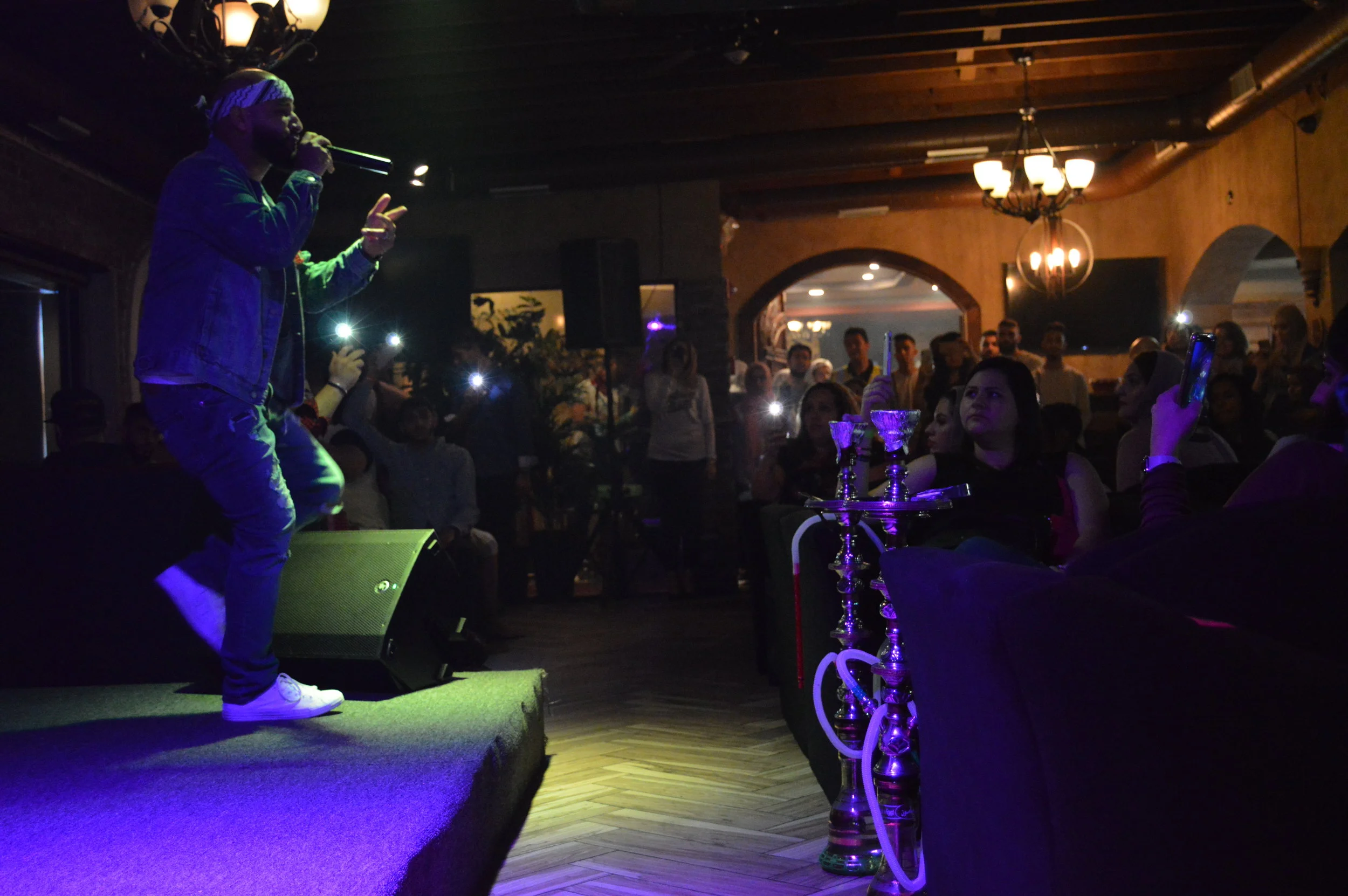Invisible Words in the Empty Air
There is nothing I have to say that can’t be better expressed through silence.
That is all that Dina’s brother, Jibran, had left in the way of a note.
Breakfast, then work and school. Back home, then dinner: cheeses, labne, cucumbers, shai maʿ naʿ naʿ (tea with mint). Four years inched by. No sound but the gentle smacking of lips, the mechanical sips of shai. Dina used to watch the steam from the shai, the fumes from the cigarettes her father smoked at the table (as everywhere else) and imagine it was Jibran’s ghost. Maybe Jibran would slip in to their noses, their mouths, and shoot to their ear canals, stopping their ears translucently. Then everything would seem still. Jibran could keep carving invisible words in the empty air.
Silence. A language all its own.
Dina was haunted by riddles: had Jibran brought the silence, or surrendered to it? How could there be nothing to say? How could saying nothing be a way of saying something? Why was she trying to follow the logic of a final note? What else was there to do?
Silence. It was all there was. A silvery spider’s web that bound them all. Dina watched the red, moist eyes in the weary heads around her gradually become glassy and listless. The same lips smacking, sipping. In her mind she drew bright images of the words she imagined sat buried in her parents’ beings, weighed down as by endless piles of rubble. She tried to picture these words flashing brightly, illuminating the walls, each other. She breathed deeply, hoping to swallow them and remember what “voice” was.
What words?
Something inside her screamed. FREE PALESTINE. She scribbled it furiously on the classroom walls one day after class had let out. Whenever her teacher spoke in class, Dina experienced a different kind of silence, one defined by an uninterrupted stream of words that amount, inevitably, to nothing. She scribbled the words on the wall. When she was done, she stood back, looking at the words through eyes broken up by tears. She tried to breathe the words, imagining what it would be like to yell them at the top of her lungs, for all the class to hear. The words she’d first seen on a poster in Jibran’s room. The room whose door was always closed now.
Of course it was her. The only Arab girl in the class. Of course. What will your parents have to say about this?
Dina felt as though she had a pair of eyes inside of her that opened widely, eagerly even, at the question.
Her father was sitting in the kitchen. Her mother, present and vanished, stirred faintly in their bedroom.
Had the school called?
Her father kept his gaze elsewhere.
Because it had been her. Of course. She had nothing to hide.
Silence.
Did he have anything to say about what she’d done? Anything at all?
“We’re Jordanian.”
But sitto, her grandmother, his mother, used to tell them—
“Jordanian.”
But the poster in Jibran’s room—
“JORDANIAN.”
Dina wondered if this was the shouting she had craved all this time. Something about it seemed too far away, too soft.
Her father lit a cigarette.
Would she be grounded?
He blew the smoke out slowly, and it snaked upwards toward the ceiling before disappearing.




